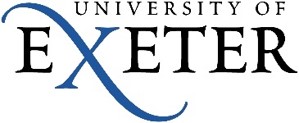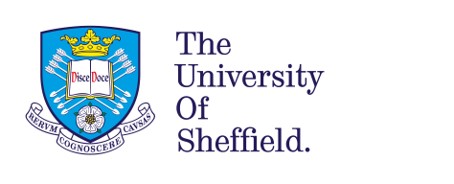

Electrons-2-Chemicals - E2C
Partners
See our partners below.

TNO
Netherlands Organisation for Applied Scientific Research
TNO is one of the founding fathers of VoltaChem, a public-private shared innovation program that is focused on industrial electrification and energy conversion & storage. TNO has extensive knowledge and a wide network base in electrochemistry, biobased chemistry and CO2 capture & utilization. The direct and indirect electro-conversion of renewable feedstock to chemical products and energy carriers is an important focus in enhancing the electrification of the chemical industry, while at the same time working on decarbonization of the industry.
The objective of TNO is to accellerate development and implementation of Power-2-X and industrial electrification technologies. Within this project, TNO will raise the TRL level of the most important technological building blocks to a level that is interesting for industry to start investing in.

VITO
Flemish Institute for Technological Research
The use of CO2 as an alternative feedstock for the chemical sector is one of VITO’s flagships for the coming years. The current focus is on CO2 electroconversions (using direct input of renewable electricity) and CO2 bioconversion (using input of renewable hydrogen). VITO has a long-standing experience in electrochemistry, which is in more recent years also applied to electrocatalytic and electrosynthesis conversions. The main expertise lies in the development of proprietary low cost and efficient (gas diffusion) electrodes (with integrated electrocatalysts), stack and system design, process optimization and technoeconomic calculations.

TU Delft
Delft University of Technology
The Large-Scale Energy Storage section at TU Delft concentrates its research work and education on the different ways of storing excess, cheap power over the seasons on a large scale. Therefore, different concepts of Power-to-X are taken into account: indirect (via electrolysis and H2) and direct conversion, among which the direct electrochemical conversion of CO2 to energy carriers plays a prominent role. Scale-up of technology is the main target of the research.
The section has a long year experience of performing fundamental and applied scale-up targeted research concerning synthesis gas generation, based on the renewable source biomass. Reactor design, separation technology and process system modelling and validation on industrially relevant pilots/skids are among the competences of the group. The aim of the section is to further develop and apply chemical engineering methodologies to scale up electro-chemical reactors, so that the way is paved towards pilot demonstration of such novel technology.

UAntwerp
University of Antwerp
The Advanced Reactor Technology (ART) group at UAntwerp contributes to the direct electrochemical reduction of CO2 to CO and formic acid. To synthesize electrocatalysts in-house, ART has profound knowledge of chemical impregnation and electrodeposition techniques. Using these methods the group can synthesize different metal electrocatalysts, depending on the desired product. To screen the electrocatalysts/electrodes, ART has both electrochemical as tomography techniques at its disposal. Using differential electrochemical mass spectrometry (DEMS), product distribution can be measured in-situ while performing electrochemical experiments. To study the morphology of the electrocatalyst, ART has access to high-resolution TEM within the university.

Exeter
University of Exeter
The University of Exeter is in the top 10 UK universities and is a member of the prestigious Russell Group of research-intensive universities. The Renewable Energy Group is leading the way in renewable energy research and teaching in the key areas of offshore renewable energy, energy storage, energy policy, and carbon capture and storage. The group has access to the conventional laboratory facilities, including materials testing and workshops, but also has significant specialist resources applicable to the renewable energy sector. The team, including Dr. Xiaohong Li, Dr. Asif Tahir and Prof. Tapas Mallick, have well recognised expertise in hydrogen production and the renewable energy field.

ULille
University of Lille
The MOCIS team (link) belong to the Laboratory CRIStAL, Control, Signal Processing and Computer Science Laboratory of Lille, France (cristal.univ-lille.fr, more than 230 permanent staff and 200 non permanent). The team members are based in the campus of Villeneuve d'Ascq.
The objective of the MOCIS team is the design of methods and tools for the integrated design of multiphysics energy systems. lt considers the different aspects of Controlled Dynamic Systems design in a simultaneous and consistent way, i.e. modeling, structural analysis, control and surveillance together with their computational implementation. For this purpose, two complementary approaches are chosen: (i) the Bond Graph methodology for its capacity to model multi-energy and multidisciplinary domains using an unified language and also for its ability to analyze and monitor dynamical systems due to its graphical, causal and structural properties; (ii) Systems of Systems (SoS), enabling the representation of hierarchical multilevel systems. Fundamental research is applied to two main domains: Transportation & Robotics and Energy & Process Engineering.
The research work of the CEMOP team of the UCCS laboratory addresses implementation of new catalysts and catalytic sustainable processes to meet the societal challenges: “Clean, Safe and Efficient Energy” and “Sustainable Chemistry and Associated Processes”. The synergy between fundamental and applied research is the primary goal of the team. The specificity of their approach is to cover the entire technological chain of processing and synthesis of clean fuels and platform-molecules for modern chemical industry.
The focus of their research lies at the development of new catalytic materials and processes for application in alternative energy generation and renewable chemicals. They specifically focus on the field of design of novel heterogeneous catalysts for C1 chemistry (methane, carbon dioxide, Fischer-Tropsch synthesis) and biomass transformation using new synthetic, spectroscopic, and reaction engineering tools to study the chemical transformation of molecules on catalytic surfaces. They are developing, in collaboration with several research groups, transient kinetic methods, isotopic labeling including SSITKA and in-situ and operando spectroscopic techniques.

Sheffield
CO2Chem Network at the University of Sheffield
Sheffield hosts the CO2Chem Network with over 1200 members, globally, and is chaired by Prof. Peter Styring. CO2Chem brings together researchers, industrialists and policymakers from across disciplines to further the utilisation of carbon dioxide as a feedstock for the manufacture of chemicals, minerals and fuels.
The Styring Group has considerable expertise in Life Cycle Assessment, Techno-economic Analysis and policy development, with additional expertise in outreach. Styring worked as a Senior Media Fellow on television and radio 2006-9. Members of the Styring group played leading roles in Mission Innovation (G20 & EU) CCUS in 2017, helping to define national and global policy in the field.